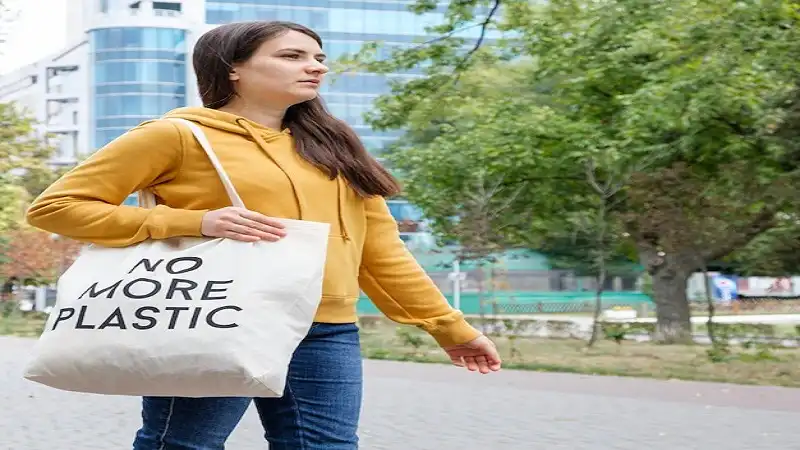Why Reusable Bags Are a Game Changer

Introduction
As the world grapples with the mounting issue of environmental degradation, single-use plastic bags have emerged as significant contributors to pollution. With billions of these bags used annually, their impact on the environment is devastating. Reusable bags offer a sustainable alternative, gaining popularity for their eco-friendly benefits. This article explores why reusable bags are truly a game changer, touching on their environmental impact, economic benefits, versatility, and more.
1. Environmental Impact
Reduction in Plastic Waste
Plastic bags are ubiquitous in daily life, yet their convenience comes at a steep cost. An estimated 500 billion plastic bags are used worldwide each year, with many ending up in landfills or as litter in natural environments. These bags take hundreds of years to decompose, releasing toxic chemicals into the soil and waterways. Reusable bags significantly reduce the number of plastic bags produced and discarded, helping to mitigate this pervasive problem.
Decreased Pollution
The pollution caused by plastic bags extends beyond landfills. They frequently find their way into oceans, where they pose a threat to marine life. Sea turtles, birds, and other wildlife often mistake plastic bags for food, leading to ingestion, entanglement, and death. By switching to reusable bags, we can decrease the amount of plastic waste that enters our ecosystems, thereby protecting wildlife and preserving biodiversity.
2. Economic Benefits
Cost Savings
While plastic bags are often given away for free, their hidden costs are substantial. Governments and communities spend millions annually on cleaning up plastic waste. Consumers also face indirect costs through increased prices on goods to offset environmental levies. Reusable bags, although initially more expensive, are a cost-effective solution in the long run. They are durable and can be used repeatedly, saving money over time and reducing the financial burden on waste management systems.
Incentives and Programs
Many retailers and governments recognize the value of reusable bags and offer incentives to encourage their use. Stores frequently provide discounts or loyalty points to customers who bring their own bags. Additionally, some cities and countries have implemented bans or taxes on single-use plastic bags, further promoting the adoption of reusable alternatives. These initiatives not only support environmental goals but also foster a culture of sustainability.
3. Versatility and Convenience
Design and Functionality
Reusable bags come in a variety of designs, catering to different needs and preferences. From sturdy totes to compact foldable bags, there is a reusable option for every occasion. Many are made from materials like cotton, jute, or recycled plastics, which are not only durable but also easy to clean. Features such as reinforced handles, ample storage space, and insulated compartments make reusable bags highly functional and user-friendly.
Multi-Purpose Use
Beyond shopping, reusable bags serve numerous purposes. They can be used for carrying gym gear, packing lunches, transporting books, and even organizing household items. Their versatility makes them an essential accessory for everyday life. By incorporating reusable bags into various activities, individuals can further reduce their reliance on single-use plastics and contribute to a more sustainable lifestyle.
4. Fashion and Personal Expression
Stylish Options
Gone are the days when reusable bags were plain and unattractive. Today, they are available in a myriad of stylish designs, colors, and patterns. Whether you prefer a minimalist aesthetic or bold, eye-catching prints, there is a reusable bag to suit your taste. This trend has made sustainable living more appealing and accessible to a broader audience.
Customizable Choices
Many companies offer customizable reusable bags, allowing individuals and businesses to create unique designs. Personalized bags can reflect personal style, promote a brand, or convey a message. For businesses, custom bags serve as effective marketing tools that showcase a commitment to sustainability while enhancing brand visibility.
5. Global Movement and Awareness
Increased Adoption Worldwide
The push for reusable bags is not limited to a few regions; it is a global movement. Countries like Ireland, Kenya, and Australia have implemented successful plastic bag bans or levies, resulting in dramatic reductions in plastic waste. These initiatives demonstrate the effectiveness of policy measures in encouraging sustainable practices. As more nations join this effort, the collective impact on the environment is profound.
Role of Advocacy and Education
Nonprofit organizations, environmental groups, and community advocates play a crucial role in promoting the use of reusable bags. Campaigns and educational programs raise awareness about the environmental impact of plastic bags and the benefits of reusable alternatives. By informing and engaging the public, these efforts drive behavioral change and foster a culture of sustainability.
6. Challenges and Considerations
Addressing Misconceptions
Despite the benefits, some misconceptions about reusable bags persist. Concerns about cleanliness, cost, and convenience can deter people from making the switch. It is essential to address these myths with accurate information. For example, reusable bags can be easily cleaned with regular washing, and their long-term savings outweigh the initial cost. By debunking these misconceptions, we can encourage more widespread adoption.
Proper Use and Care
To maximize the benefits of reusable bags, proper use and care are important. Regularly washing bags prevents the buildup of bacteria and ensures they remain hygienic. Choosing bags made from sustainable materials and recycling them at the end of their lifespan further enhances their environmental impact. Providing guidelines on the maintenance and disposal of reusable bags can help users adopt sustainable practices effectively.
Conclusion
Reusable bags are more than just a convenient alternative to plastic; they are a crucial part of the solution to environmental pollution. By reducing plastic waste, saving costs, offering versatile use, and promoting sustainable fashion, reusable bags exemplify how small changes can lead to significant positive impacts. Embracing reusable bags is a simple yet powerful step toward a greener future. Let’s make the switch today and contribute to a cleaner, healthier planet.